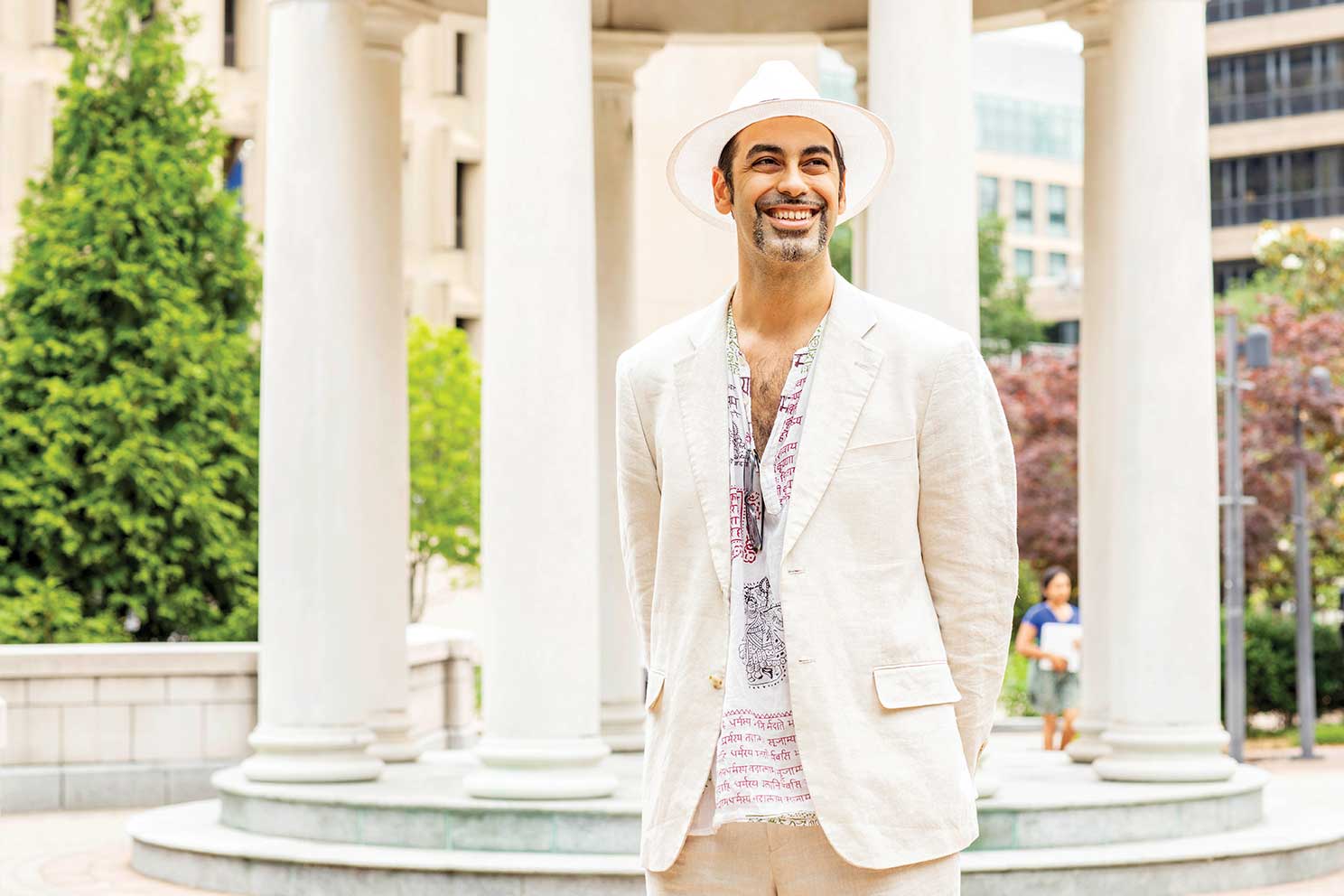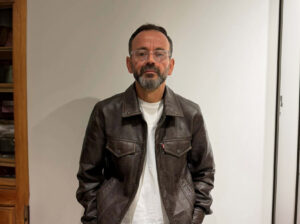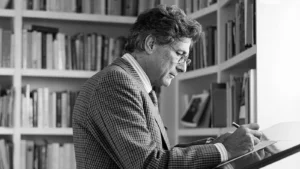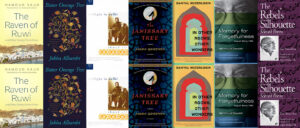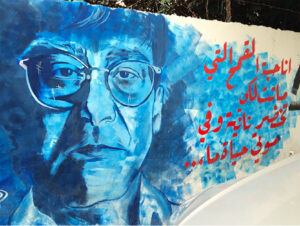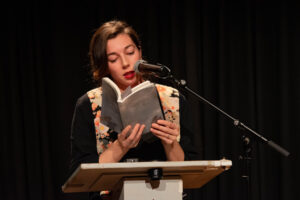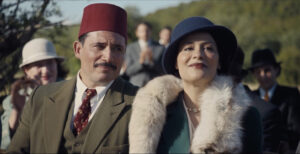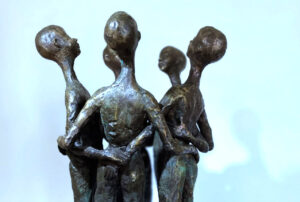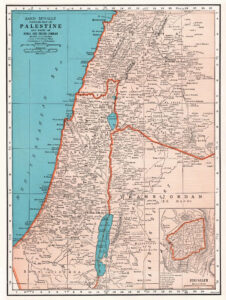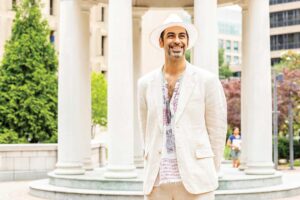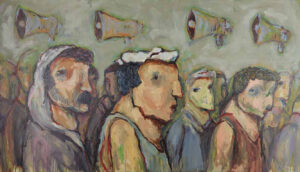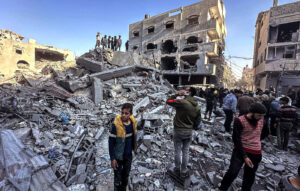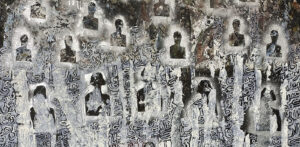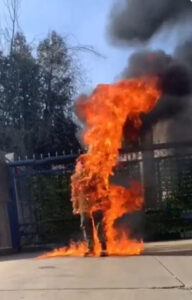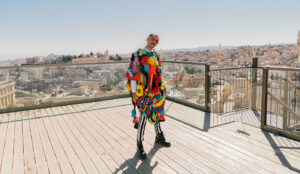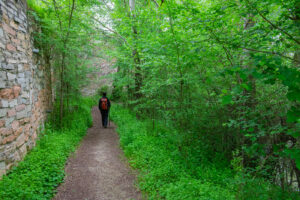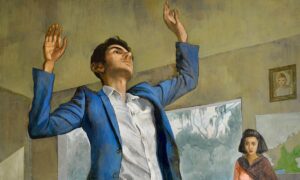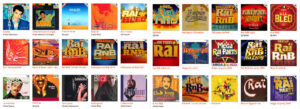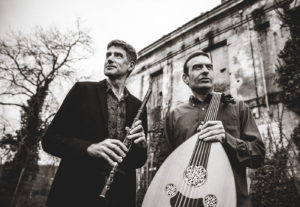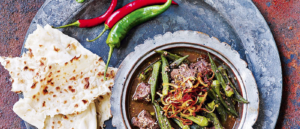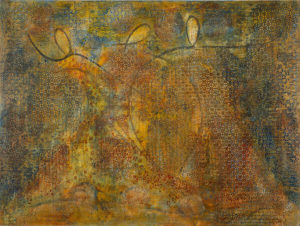Select Other Languages French.
When an Israeli band set one of Yahia Lababidi’s poems to music, it created a fragile bridge across political chasms. In this lyrical meditation, he reflects on the moral complexity of art in a time of genocide and grief. What remains is a humble faith in the healing power of poetry, music, and the shared ache of being human.
It is a strange, humbling thing to hear one’s words sung back. Stranger still when they return from a place dense with history and sorrow. Some time ago, I learned that an Israeli band, The Hazelnuts, had taken one of my poems, “You Again,” and set it to music. They performed it live in Jerusalem, their voices weaving my verses into the air of a city forever suspended between the sacred and the broken.
I watched the video quietly, as a member of our suffering human family, trying to understand what these strangers might have heard in my lines. There was a softness to their delivery, a reverence that suggested they, too, had been visited by the spirit of the poem. I was moved to see a large and appreciative audience listening so intently to my poetry in an intimate setting.
The poem begins with a line that is an artist manifesto of sorts:
You again, of the singing wound.
As though pain were not only recurrent, but melodic. As though suffering, transfigured, might revisit us in the form of music, and that return might make it more bearable. There is a certain resignation here, but also wonder, an acknowledgment that pain, when transformed by art, can become companion rather than adversary.
The lines that follow are elliptical, austere in language but full of longing:
here again, lost and found and lost
trafficking in metaphysics and eternity
as the nearest hopes.
This is the terrain of the mystic and the exile, of anyone who has had to ration hope like food, those for whom the spiritual is a survival instinct. And when these words are sung, especially in a city like Jerusalem, the metaphysical becomes actual. Eternity does not hover above; it presses in. The singers become pilgrims, just as the poem’s subject is:
where to, pilgrim
outdistancing chasms
rationing emotions
seeking sustenance
Frankly, I was quite surprised when the band chose this particular poem to put to music. I suspected it was too inward, too elusive to be appreciated by a general audience. But in their capable hands, the heartfelt delivery took the words on the page to the next level and made it more accessible. The jazzy music, their soulful voices, lend my poem wings. People’s tastes seem to be evolving, I find, gravitating toward song lyrics that carry more interior life and poetic charge. Thank goodness for the sophistication of feeling that is art.
I recall that when my poem was performed live in Jerusalem, I was living far away from the Middle East in the US, feeling helpless, frustrated, and overwhelmed with politics. When I discovered The Hazelnuts had adapted “You Again” and were recording it in their studio, I reached out to express my gratitude. We had been in touch earlier, with them expressing polite interest in my poetry. Yet I did not know which poem, specifically, they were interested in or what they might do with it. Listening to that first studio version, before they performed it live, was something of a revelation and thrilling. Later, reading interviews/reviews of Hazelenut’s new album in the local Israeli press, I hoped that readers and listeners would somehow be encouraged to hear the band speaking of collaborating with a poet of Palestinian background. I sensed that we had achieved something greater than ourselves: creating a small bridge woven of words, music and goodwill.
I felt that the band handled a somewhat difficult poem with grace, even tenderness. So, I was genuinely surprised, and somewhat disappointed, when members of my own family did not share my uncomplicated joy and even questioned the wisdom of collaborating with Israelis, at that time. Was there ever a right time, I thought? Wasn’t the worst time the best time? Shouldn’t we all try to do what was in our power to affirm our shared humanity and reach out beyond the sordid mess of politics? Despite these mixed emotions, I took heart from Edward Said’s own musical collaboration with the Israeli conductor and pianist Daniel Barenboim—an alliance that sought to show how dialogue, however tentative, could be sustained through the shared language of music.
Yet, that knot of tangled feelings has grown heavier in recent months. With the ongoing genocide in Gaza, the cries of the wounded and dying overwhelming the airwaves, to hear my own words sung, in Jerusalem, by an Israeli band, feels more morally complex in ways that I am still processing. As I rewatch the video, I sigh and wonder what might be in the hearts of all of those souls in attendance. Are they there for mere entertainment?
Have they taken an unambiguous stand against their own depraved government and declared Not In Our Names? Who can say… Yet, I cannot dismiss the vital value of our connection as artists, with allegiances to Palestine, Israel and the Human Family. This was real, and continues to matter. Art may transcend boundaries, but it does not entirely absolve us of them. I still believe in that fragile transmission of beauty across divides, yet now, I believe it must be carried with awareness, with sorrow, and with accountability. The words of Mahmoud Darwish ring in my ears: “Every beautiful poem is an act of resistance,” and “We suffer from an incurable malady: Hope.”
It is true that I did not write this particular poem with diplomacy in mind. I wrote it during one of those twilight hours when poetry comes unbidden and is accepted, gratefully, like spirit medicine. This is the mystery and miracle of art. How such spiritual medical aid travels, gratefully received across borders that politics cannot cross. I have long believed that art moves through rooms barred to diplomats and soldiers. It is humbling to consider how it speaks to the ache of things, and can transmute this hurt, if only briefly, into something we can carry. That an Israeli ensemble would recognize something of themselves in my words, and give them voice in our joined city, speaks to the transcendent and persistent ways art finds paths of communion.
What is diplomacy, really, if not the attempt to speak across difference, to find common language where ordinary speech has failed? Poetry, in its essence, performs this task daily. It speaks from the interior, where suffering and beauty often share a root system. Past ancient enmities, art offers itself up, as a sacrifice. And music carries that gift of hummable pain further: into ears, into bodies, into spaces wide to receive healing.
In that live performance, there is a moment of suspension, just before the final stanza. The voices drop, and what follows is this disclosure:
now, having stirred some thrumming
hour when the moon throws
her full-bodied light
over all, like a silver screen night
of silent films, the whirring
of the reel.
The image is elusive (even to me, the so-called author) it seems antiquated: silent films, the moon as projector, memory flickering across time. Yet somehow it works, conjuring a fragile state that embraces us all and is steadying. A joint recognition of woundedness, and an attempt to cradle it in dream-like song.
This heartening performance of “You Again,” filmed and shared by Sofar Jerusalem, confirms to me that even now, even here, connection is possible and necessary. It does not deny the enormity of the suffering in Palestine/Israel, it answers it with breath, voice, imagination and beauty that refuse to be territorial. A wound that sings may still be a wound. But when others choose to sing it with you, something in the wound begins to mend.



